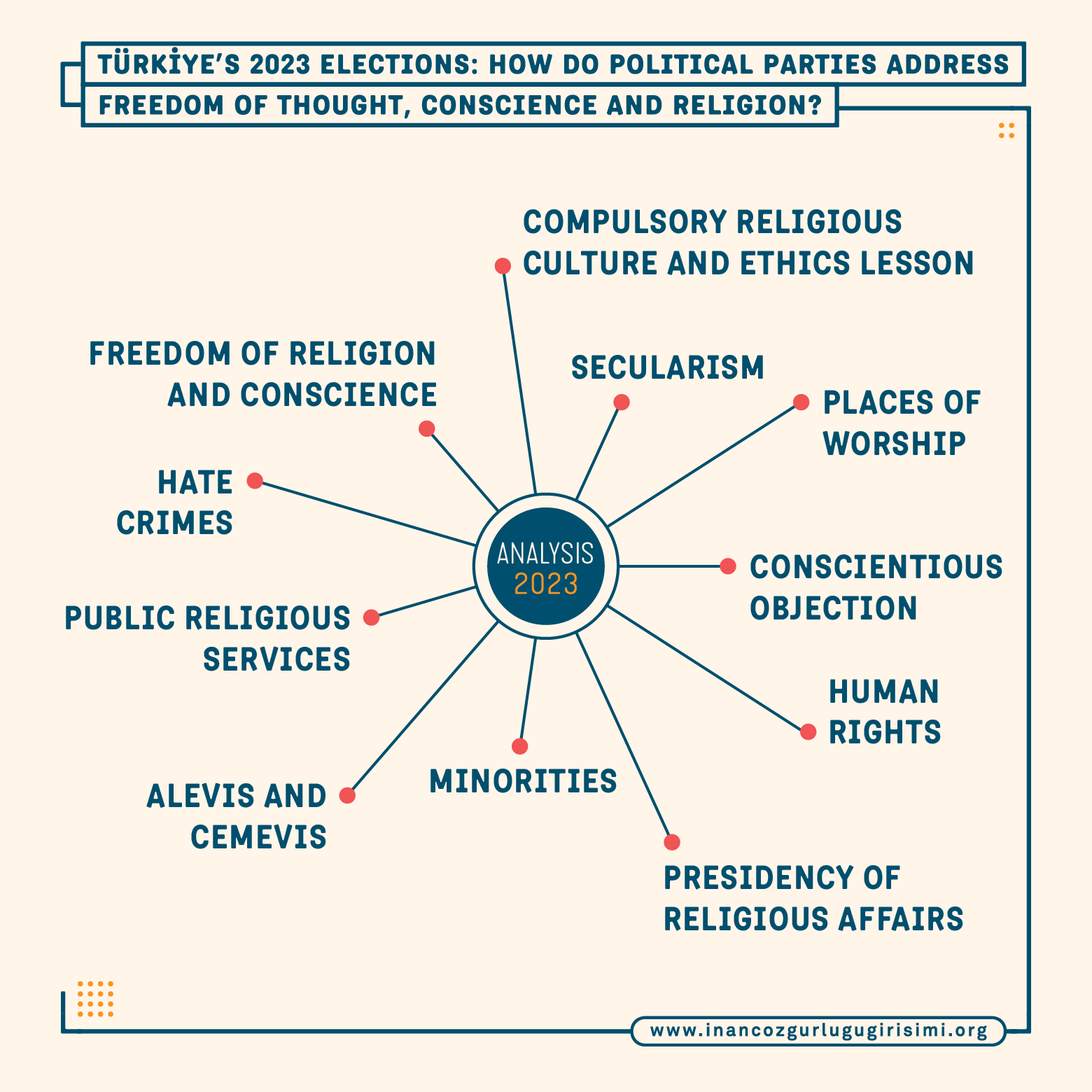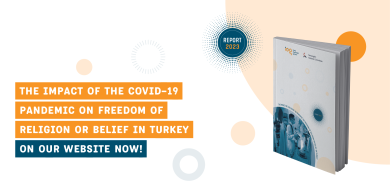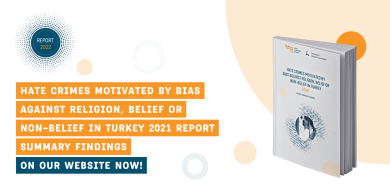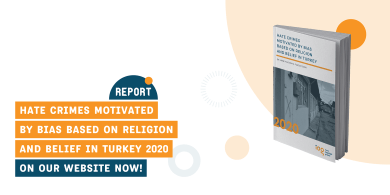New publication: Türkiye’s 2023 Elections: How Do Political Parties Address Freedom of Thought, Conscience and Religion?

Türkiye’s 2023 Elections: How Do Political Parties Address Freedom of Thought, Conscience and Religion? analysis offers a comparative assessment of political party commitments on six main issues.
TO ACCESS THE ANALYSIS PLEASE CLICK HERE
The long-standing issues in the field of freedom of religion or belief in Turkey remain unresolved. Compulsory Religious Culture and Ethics lessons, inequality in public religious services, minorities, hate crimes, the non-recognition of the right to conscientious objection and the status of places of worship are among these problems.
Despite critical challenges the commitments of political parties in the field of human rights or freedom of religion or belief did not play a prominent role in the 2023 Türkiye elections. However, the political parties that have seats in the Turkish Grand National Assembly (TBMM) and participated in the 2023 elections have distinct positions and divergences on Türkiye’s human rights obligations arising from international human rights conventions, secularism, freedom of religion and conscience, minority rights, public religious services and hate crimes. These varying positions need to be recognized and discussed in the public sphere.
The analysis, focuses on the commitments of political parties on six critical areas, aims to raise awareness on this issue and create a discussion platform. The study, prepared with the support of the European Endowment for Democracy, will also be a resource for monitoring the changes in the commitments of political parties in the future.
Analysis highlights the main issues on:
- human rights,
- secularism,
- freedom of religion and conscience,
- public religious services,
- minorities,
- hate crimes.
This study includes political parties which had at least two seats in the TBMM before the 2023 parliamentary election: the Justice and Development Party (AKP), Republican People’s Party (CHP), Peoples’ Democratic Party (HDP), Nationalist Movement Party (MHP), Good Party (IP), Workers’ Party of Türkiye (TIP), Democrat Party (DP), the Homeland Party (MP), Felicity Party (SP), and Democracy and Progress Party (DEVA) due to their different positions on the Table of Six (an alliance of six opposition parties); and Party of the Greens and the Left Future (YSP).
In this context, the programs of the parties in question were examined. Furthermore, relevant documents, published by the parties until the date of this document, such as election manifestos, action plans and Nation Alliance’s Joint Consensus Document were analyzed to strengthen the analysis.
Prominent findings about political parties:
- Commitment to the human rights conventions that Türkiye is party to needs to be expressed more directly in all party programs;
- commitment to implement UN and Council of Europe resolutions, opinions and recommendations to improve human rights in Türkiye needs to be strengthened;
- there seems to be a continuing need for a human rights-focused framework that thoroughly analyzes how to find solutions to secularism, freedom of religion or belief, minorities, religious orders, or tarikat, and Türkiye’s other problems in this area;
- none of the programs offer solutions regarding the strengthening of the protection of the right to freedom of religion or belief in the field of education;
- the right to conscientious objection to military service is not included as part of freedom of religion or belief in most party programs;
- many party programs include the goal of changing the status quo for the better in regards to the general demands of Alevis;
- solution proposals for hate crimes need to be addressed in more detail in all party programs;
- apart from AKP and MHP, all other parties show a desire to transform the Presidency of Religious Affairs into a more neutral and inclusive institution.
To ensure equal protection of freedom of religion or belief for all political parties should work to:
- fulfil human rights obligations by giving explicit commitment to international human rights conventions to which Türkiye is a party;
- protect the right to freedom of thought, conscience and religion based on international human rights standards (including the right to conscientious objection to military service, freedom to establish and maintain places of worship, use of religious symbols, and the collective dimension of freedom of religion and belief);
- remove reservations to human rights treaties;
- comply with the decisions, opinions and recommendations of international human rights compliance control mechanisms, especially the decisions of the ECtHR;
- be neutral and unbiased towards all religion, belief and non-belief;
- observe the principles of equality and impartiality in the provision of public religious services;
- recognize places of worship based on impartiality and human rights standards;
- take necessary steps without delay to fully protect freedom of thought, conscience, and religion of children in the education system and the right of parents to raise their children in line with their own religious or philosophical views;
- fully uphold the rights of minorities arising from the Treaty of Lausanne, other human rights treaties, and the Constitution;
- enact hate crime legislation and adopt policies to prevent hate crimes.







